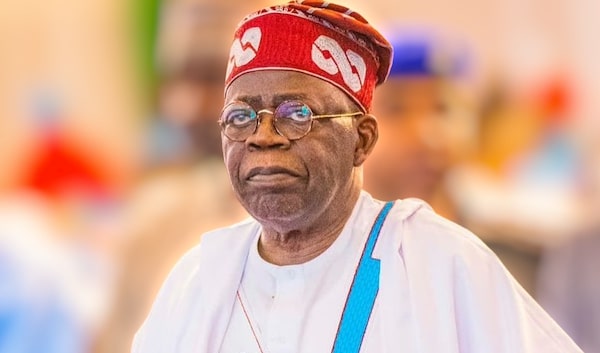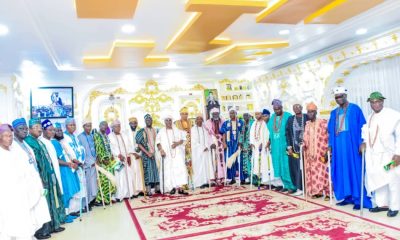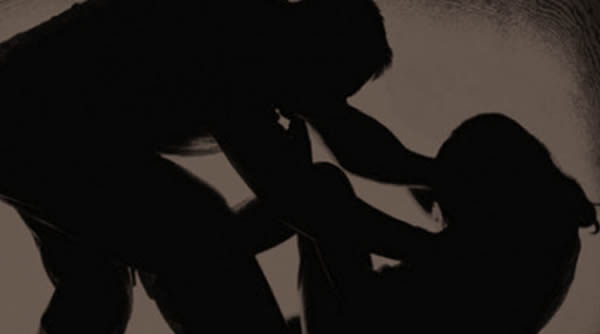News
Hike In Electricity Tariffs: The Timing Is Wrong, Reverse It – NUEE President Tells FG

The National President of the National Union of Electricity Employees (NUEE) Comrade Engr. Adebiyi Adeyeye stands firm in his commitment to advocate for the welfare of his Union members and the Nigerian populace amidst recent developments in the power sector.
The NUEE Boss has issued a swift response to the recent press release by the Nigerian Electricity Regulatory Commission (NERC) regarding tariff adjustments. As the representative body for employees across the Generation, Transmission, and Distribution sectors, it is our duty to address matters that directly impact our members and the public.
Upon thorough review of the Commission’s announcement, it has become evident that the decision to escalate tariffs does not align with the interests of the masses. NUEE vehemently opposes any policy that burdens the Nigerian people, particularly the less privileged.
NUEE President, while reacting to the recent electricity tariff hike said, “I am deeply concerned about the burden this increase places on our members and the general masses, particularly during a challenging economic climate like this.
“While we recognize the need for investment in the power sector, I believe a focus on improved efficiency and reduced energy losses should be prioritized before further tariff adjustment.
The proposed tariff hikes, especially for Band A consumers, will disproportionately affect everyone that rely heavily on electricity for their daily needs. This shift in pricing dynamics threatens to exacerbate inequalities, favoring the affluent while placing undue strain on the less fortunate segments of society.
The rising cost of electricity directly impacts household budgets, forcing difficult choices between essential needs and paying electricity bills.
For businesses, the increased cost of electricity translates to higher production costs. This can lead to price hikes for goods and services, further fueling inflation and hindering economic growth.
Furthermore, the NUEE President asserts that the intended benefits of this tariff adjustment do not extend to our members in the distribution sector, most especially the Legacy Staff. Instead, it appears to serve the interests of a select few within the DISCOs, disregarding the plight of workers facing delayed salaries and pensions, ugly infusion of high targets for the staff and threatening them to meet up with at all costs, amongst other financial hardships.
A non-technical professional can never make a valuable contribution to the success of the Nigerian power sector.
It is worthy of note, that the timing of this tariff increase feels particularly insensitive given the current economic situation. Many Nigerians are already facing financial hardship, and this additional expense adds unnecessary stress.
As such, no consultation was made with any stakeholder before flagrantly violating the provisional power sector reform act, 2023 as amended.
Since the privatization in 2013, there have been 7 different tariff increases. Yet, nothing meaningful has been done to enhance the worker’s welfare other than engaging them in modern day slavery. No appreciable improvement has been made in the power sector since the privatization.
Moreover, much of the DISCOs electrical infrastructure dates back decades. Overtime, their transformers, distribution poles, and distribution networks deteriorate to inefficiencies and increased power losses. Thereby, reducing the wheeling capacity of the Transmission Company of Nigeria of about 12,000MW to just about 4,000MW.
Regular maintenance is crucial for keeping the circuit in good working order. However, lack of proper funding and resources which looms in the DISCOs often lead to neglected maintenance further exacerbating the problems.
Significant amount of power is lost during distribution due to outdated and poorly maintained power equipments and 33/11kV lines. These losses can be as high as 40% in some areas, significantly reducing the amount of electricity that reaches consumers. How will the DISCOs neglect all these, look away from the changes they should have made to the power sector after 13 years of privatization and move on to increasing electricity tariffs?
It’s not out of place to have the government subsidize electricity. Whence in some advanced countries, they still do that till now.
Germany for example, has a long history of supporting renewable energy resources through feed-in tariffs. The subsidy is paid based on the amount of electricity produced, and it helps to offset the initial cost of installing renewable energy systems.
Also, the United States has various programs that provide subsidies to low-income households to help them afford their electricity bills. These programs are typically administered by state and local governments, and they can take the form of direct bill discounts or assistance with weatherization measures that can help reduce energy consumption.
Finally, the recent electricity tariff hike is a blatant disregard for the economic struggles of Nigerian workers.
Not even in a society where minimum wages are ambivalently doubtful.
NUEE strongly condemn this decision and demand immediate action to reverse it.
If the government fails to address the crippling cost of electricity, NUEE will not hesitate to take strong action, including the swift withdrawal of our members expected to be used by DISCOs to impose the tariff hike on the good people, to protect the livelihood of our members.
I however call upon all Nigerians to join us in raising our voices against this injustice. Together, we can force the government to prioritize the well-being of its citizens over corporate interests.
Our unwavering commitment remains to safeguard the interests of our members and ensure equitable access to electricity for all Nigerians.
-

 News2 days ago
News2 days agoOsun Communal crisis: Slain NSCDC operative Buried Amid Tears [Photos]
-

 News4 days ago
News4 days agoKings Worshipping Idols Are Herbalists-Oluwo
-

 News3 days ago
News3 days agoFIDA Calls For Prosecution Of Medical Doctor Accused Of Raping Teenage Admission-seeker In Osun
-

 News2 days ago
News2 days agoNSCDC Officer Killed, Palace Burnt, Others Injured As Communal Clash Erupts In Osun Communities




